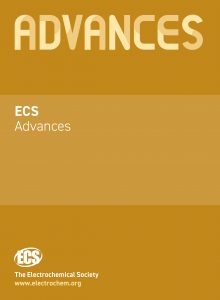 The latest Editors’ Choice article in ECS Advances takes on one of the most pressing challenges in electrochemical energy research: advancing sustainable, high-performance materials for fuel cells. In “Can Hydrocarbon-Based MEAs Close the Performance Gap to State-of-the-Art Perfluorosulfonic Acid-Based MEAs for PEM Fuel Cells?,” Konstantin A. Weber, Carla S. Harzer, Elias Bindl, Kilian Stengl, and Hubert A. Gasteiger present a breakthrough approach that could reshape the future of membrane electrode assemblies (MEAs).
The latest Editors’ Choice article in ECS Advances takes on one of the most pressing challenges in electrochemical energy research: advancing sustainable, high-performance materials for fuel cells. In “Can Hydrocarbon-Based MEAs Close the Performance Gap to State-of-the-Art Perfluorosulfonic Acid-Based MEAs for PEM Fuel Cells?,” Konstantin A. Weber, Carla S. Harzer, Elias Bindl, Kilian Stengl, and Hubert A. Gasteiger present a breakthrough approach that could reshape the future of membrane electrode assemblies (MEAs).
Closing the Gap with Innovation
The research introduces a wet hot-pressing method that enables the fabrication of high-performance hydrocarbon (HC)-based MEAs—an important fluorine-free alternative to conventional perfluorosulfonic acid (PFSA)-based ionomers. Historically, HC-based systems struggled to match the oxygen reduction reaction (ORR) activity and durability of PFSA-based MEAs, largely due to catalyst poisoning and incompatibilities in processing.
This study overturns those assumptions, demonstrating that optimized all-HC-based MEAs can perform nearly identically to PFSA-based systems under challenging operational conditions. With current densities exceeding 2 A cm⁻² at 0.6 V, this work underscores the tremendous potential of HC-based materials to deliver high efficiency while addressing environmental and material sustainability concerns.
Why It Matters
Fuel cell technologies sit at the heart of global efforts to decarbonize transportation and power generation. Developing alternatives to PFSA-based materials is essential, both for reducing environmental impact and ensuring resilient supply chains. This article not only delivers strong scientific results but also opens the door for new strategies to accelerate clean energy adoption.
Read, Share, and Submit
Read this exciting open access article in ECS Advances here and explore other ECSA published works that highlight excellence across electrochemistry and solid state science.
Consider submitting research that pushes boundaries, advances fundamental understanding, or demonstrates novel applications in these fields to ECS Advances. With ECSA’s rigorous peer review, global readership, and open access model, articles reach the widest possible audience while driving meaningful impact.
Let’s continue building the future of electrochemical and solid state technologies—together.

